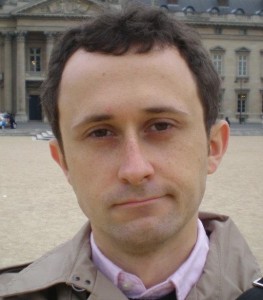 As another first Wednesday in August approaches, I feel pensive and wistful that this year I won’t be spending changeover day in the heart of the National Health Service. Although you probably don’t hear it, I’m writing this in an American accent and am setting off for a spell to Boston, Massachusetts, where I grew up and my family still remain, to start a specialty registrar training post in infectious diseases.
As another first Wednesday in August approaches, I feel pensive and wistful that this year I won’t be spending changeover day in the heart of the National Health Service. Although you probably don’t hear it, I’m writing this in an American accent and am setting off for a spell to Boston, Massachusetts, where I grew up and my family still remain, to start a specialty registrar training post in infectious diseases.
All of my medical training has been in Europe, with all of my postgraduate training from foundation onward in London. So while I do look forward to learning new lessons from working in medicine in a different country—where if my memory of “ER” serves me, I can expect a lot more shouts of “STAT!”—I can’t help but feel that I am going to discover renewed appreciation for the NHS and miss what makes medicine in the UK so distinct and rewarding.
It has been a tumultuous year, no doubt. In between Brexit, industrial action, and funding crises, junior doctors certainly have reasons to be concerned and no one would fault them for being pessimistic. But at the same time, the NHS exists as something special that—as someone who came into it from the outside—I find extraordinary.
It all started a few days before my foundation year at St Mary’s Hospital, Paddington; I was in for a surprise on my very first morning in the NHS when, while shadowing a house officer, an older patient began crying after being told he was being discharged from hospital. However, his tears weren’t due to sadness. Instead his tears arose due to the strength of his emotions, as he told us that his care truly represented everything that William Beveridge, the intellectual father of the NHS, had dreamed of and promised the British people. Needless to say, it was a heavy moment for everyone, although I have to say my subsequent first impression of my very first day in UK healthcare was something to the extent of: “I hope every day isn’t like this.”
Sadly, that has proven the case, but at the same time Beveridge’s dream continues to live day in and day out. I know that in the days before this upcoming changeover, as I work in the Liver Unit at King’s College Hospital, I will walk by dozens of patients who are undergoing and have undergone life saving liver transplantation in the NHS. And I can rest assured that none of them owe a penny or need to worry about the costs in the way that my fellow Americans sadly do.
I will also miss the tea trolley. Understandably, this is incredibly English. But I will also miss the Weetabix the patients eat for breakfast, the curry on the menu in the canteen, and the Cadbury chocolates that find their way to every nurses’ station.
I will miss how King’s College Hospital seems to serve the best chips. I will especially miss the collegiality of the mess, with its standard guarantee throughout the country of providing tea and toast, a place to sit and catch up among colleagues, and a full length couch or two.
I will miss the uniforms: the darker the blue of the nurse’s tunic, the more I could be assured that they knew more than I did about how to really get things done. I will miss bleeps being called bleeps, despite the rest of the world and even the rest of the UK calling them pagers.
I will miss the pronunciation of the word “clerking.” I will miss the hard c in encephalitis and ceftriaxone and the spelling of “ECG.” I will truly and deeply miss the pronunciation of duodenum.
I will miss the medical registrar being the brain of the hospital and the ebb and flow of the rhythm of the medical take. Most of all, in the end, I will miss the feeling of unity and purpose that comes from working in an organisation dedicated to providing the best care to everyone who needs it, and which, while not especially fancy, has its greatest resource in the people who form it.
I will miss the NHS. But in my heart of hearts, this is not a goodbye. I hope it’s a see you later. So this upcoming changeover day, good luck to all the new doctors and grizzled veterans alike.
Martin Kaminski has just completed core medical training at King’s College Hospital, London and will be starting a clinical fellowship in infectious diseases at Tufts Medical Center, Boston, Massachusetts.
Competing interests: None declared.